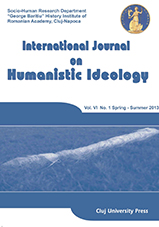The Role of Muslim Identity in Akeel Bilgrami’s Critique of Political Liberalism and an Emergentic Approach to Global Justice
The Role of Muslim Identity in Akeel Bilgrami’s Critique of Political Liberalism and an Emergentic Approach to Global Justice
Author(s): Michael DuscheSubject(s): Philosophy
Published by: Presa Universitara Clujeana
Keywords: Muslim Identity; Political Liberalism; Akeel Bilgrami; Orientalism; Essentialism; negotiated-emergent model; emergentic ethics; internal universalism; collective reflexive equilibrium; John Rawls; Global Justice.
Summary/Abstract: The first part of this paper is a close engagement with Bilgrami’s theory of Muslim identity and his subsequent criticism of political liberalism. According to Bilgrami, political liberalism is ill-equipped to accommodate fundamental commitments of religious believers. His argument rests on the philosophical assumption that religious persons, particularly Muslims, need their beliefs to be reconfirmed by the state, and on the empirical assumption that Islam has an inbuilt pretension to law and state. The paper argues that the use of an empirical argument in order to prove a philosophical point against political liberalism raises doubts about the essentialist implications of Bilgrami’s critique. In the second part, this paper pays tribute to Bilgrami’s critique of Archimedean universalism and Bilgrami’s negotiated-emergent model. Connecting the latter with an argument of Putnam, this paper develops an emergentic approach to ethics based on the notion of Internal Universalism. Internal Universalism is shown to be an independent position between Archimedean universalism and normative Relativism which strives for, but never reaches, a collective reflexive equilibrium à la Rawls
Journal: International Journal on Humanistic Ideology
- Issue Year: VI/2013
- Issue No: 01
- Page Range: 67-84
- Page Count: 18
- Language: English

